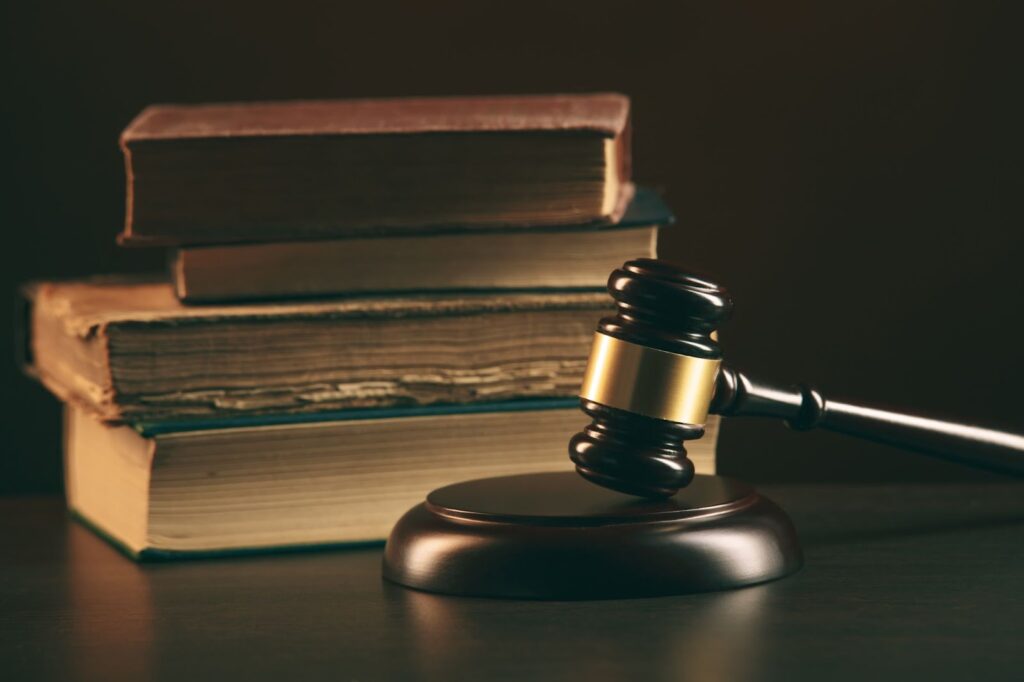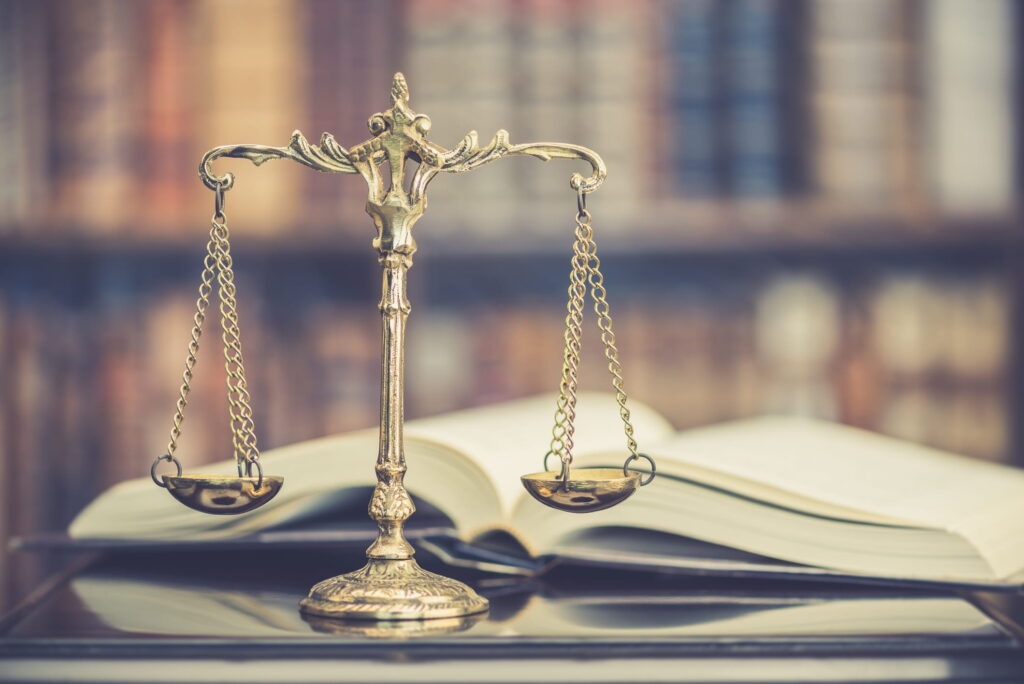What to Know About Civil Lawsuits?

When you or your loved one is seriously injured in an accident caused by another’s negligence, it can have long-lasting impacts on you and your loved ones. Facing uncertainty over medical bills, lost income, and attempting to focus on healing and recovery can be challenging. It is in these times that it is beneficial to consult with civil lawsuit lawyers to evaluate your options.
- What is a civil lawsuit?
- When would I need to file a civil lawsuit?
- How do I file a civil lawsuit?
- Common Civil Lawsuit Terms Explained
- What are the roles in a civil lawsuit case?
- What are the chances of my civil lawsuit going to trial?
- When should I contact civil lawsuit lawyers?
- You Deserve Fair Compensation
- Related Personal Injury Resources
What is a civil lawsuit?
A civil lawsuit is a legal action filed by an injured party against the responsible party in civil court. Unlike criminal courts, where if the defendant is found guilty, they could be sentenced to jail, in civil proceedings, you seek monetary damages to compensate for their negligence.
The O.J. Simpson trial is a good example to illustrate the difference between criminal and civil lawsuits. The former NFL star was acquitted of criminal murder charges in criminal court.
However, the families of Nicole Brown and Ronald Goldman filed a civil lawsuit for wrongful death against Mr. Simpson. In the civil lawsuit, Mr. Simpson was found guilty of wrongful death, and the families were awarded $33.5 million in damages.
When would I need to file a civil lawsuit?
You should consider filing a civil lawsuit anytime you or a loved one sustains injuries due to another’s negligent actions. Furthermore, you should file a case if there are catastrophic injuries or a loved one dies.
How do I file a civil lawsuit?
Filing a civil lawsuit generally consists of two different stages. In the first stage, you consult a personal injury lawyer to explore your legal options and potential monetary damages. Once your lawyer determines you have grounds to file a lawsuit, they conduct an investigation and build your case.
Before filing with the court, they will attempt to reach a settlement agreement with the responsible party and their insurance company. The majority of civil lawsuits are resolved at this stage and never end up going to trial.
In the unlikely event that a settlement cannot be reached, the second stage of the process would begin. At this point, the lawsuit is formally filed with the court, and a trial date is requested.
The court will then take control of directing the case, setting hearings, and determining when the trial will start. Even during this time, it is still possible to reach a settlement and never go to trial.
Common Civil Lawsuit Terms Explained
When you file a personal injury or catastrophic injury lawsuit, you will hear many different legal terms. It is worthwhile to have a general understanding of what these terms mean.
- Compensatory Damages – The monetary amount associated with lost wages, medical bills, living expenses, pain and suffering, loss of consortium, loss of enjoyment, inconvenience, and loss of opportunity.
- Punitive Damages – Damages awarded by a judge that go beyond compensatory damages to punish the defendant when the defendant was grossly negligent.
- Contingency Fee – This is the term used when civil lawsuit lawyers agree to work on a case without any upfront payment. However, they will collect a portion of the settlement or awarded amount should they win your case.
- Complaint or Petition – This is the official document written in paragraph form that lists the allegations you are making against the responsible party.
- Negligence – The failure to provide a duty of care to prevent or reduce the risk of injuries to another.
- Comparative Negligence – In Colorado, the rule of comparative negligence is applied to civil lawsuits. It allows a percentage of the negligence or cause of the accident to be assigned to the plaintiff. As long as the percentage assigned is 49 percent or less, one can pursue a lawsuit.
- Burden of Proof – The burden of proof in a civil case is the preponderance of evidence submitted by the plaintiff and their lawyers to demonstrate to the jury that their account of events is more likely true than not true.
- Answer – This is the written response submitted by the defendant to answer for each of the allegations in the complaint. They can deny, admit, or request more information before they answer the allegation.
- Summons – This is the official notification served on the defendant should the civil lawsuit proceed to trial, often hand-delivered by a process server.
- At Issue – This term refers to your lawsuit after the court receives the defendant’s answer.
- Entering an Appearance – When the party you sue has insurance, this is the formal notice their insurance company’s attorney is joining the lawsuit on the defense team.
- Discovery – This is the period before trial where both parties and their lawyers gather information about the other’s case through disposition and interrogatories.
- Disposition – This is an oral interview conducted by the other party’s lawyers where you answer questions. Your legal team can also hold a disposition to question the defendant.
- Interrogatories – These are written requests of questions the other party wants answered while under oath.
- Initial Case Management Conference – This is the first official meeting of both parties, their attorneys, and the judge. The judge shares their expectations for the lawsuit.
- Settlement Conference – Judges will usually require both parties to make another effort to settle before setting a trial date.
- Mediation – Mediation is another process used to help the parties reach a settlement when the settlement conference is unproductive.
- Trial – The trial refers to the structured court proceedings used in the courtroom. For instance, there will be a jury selection. Next, each party gets to present their side of the case, call witnesses, and cross-examine witnesses.
- Subpoena – A subpoena is a legally binding document that is served on a witness or other individual when asked to provide testimony at trial but refuses to do so voluntarily.
- Verdict – The result of the trial determined by the jury. The jury can find in favor of the plaintiff or the defendant. They will include the value of the monetary damages the plaintiff is entitled to receive when they side with the plaintiff.
- Remittitur – This legal term is used when a judge decides to reduce the monetary damages awarded by the jury.
- Appeal – The losing side in a civil lawsuit can file an appeal when they do not agree with the judge’s decisions or believe they were unfair. However, appeals have to be made to a higher court and show some procedural error occurred.
What are the roles in a civil lawsuit case?
Other civil lawsuit terminology you should know that relates to the participants in the case.
- Plaintiff or Complainant – The person filing the civil lawsuit, often with assistance from a personal injury lawyer.
- Defendant – The negligent person or party being sued in a civil lawsuit.
- Civil Litigation Attorney – The name given to attorneys who specialize in one of the areas of civil law, such as tort law for personal injury cases.
- Process Server – The person or sheriff’s deputy enlisted by the court to serve summons and subpoenas.
- Expert Witness – A witness that provides a professional opinion about the events and who was at fault in an accident, such as accident reconstructionists or biomechanical engineers.
- Witness – An individual present at the time of the accident who can provide their account of the events that took place.
- Judge – The individual who presides over a civil lawsuit that has gone to trial. Their role is to keep the proceedings moving and to maintain order.
- Court Reporter – The court reporter is the impartial individual responsible for recording the verbal testimony in a civil lawsuit using a stenographic machine. They can be present during depositions, hearings, and other times besides the trial.
- Jury – The group of individuals, often randomly selected through jury duty, to hear a civil lawsuit and determine the verdict.
What are the chances of my civil lawsuit going to trial?
As of 2017, research conducted by Bolch Judicial Institute and Duke Law School determined about one percent of federal civil cases go to trial, and the number of district court trials was the lowest it has been in the past 55 years.
You need to remember going to trial has risks for both parties. For the plaintiff, they are putting their faith in the expertise of their personal injury lawyer to convince the jury the defendant was negligent.
The defendant and their lawyers have similar concerns. For example, they could have the opportunity to settle a catastrophic injury claim for $2 million and refuse. They could then go to trial, where the jury sides with the plaintiff and awards $15 million in damages.
It is because of these risks that there is such a high percentage of civil lawsuits for personal injuries, catastrophic injuries, and wrongful death lawsuits that never go to trial.
When should I contact civil lawsuit lawyers?
You should contact civil lawsuit lawyers as soon as possible after you or a loved one sustains injuries in an accident caused by another’s negligence. At Bachus & Schanker, we offer a free case evaluation and consultation at our law offices in Denver, Colorado Springs, Englewood, Fort Collins, and Aurora.
Should we determine you have grounds for filing a lawsuit, we will help you navigate the justice system to ensure you get the compensation you deserve. Our lawyers work on a contingency fee basis, so we do not collect any legal fees unless we reach a settlement or favorable verdict at trial.
sources
O.J. Simpson Trial. (2022).
CO Code § 13-21-111. (2021).
Smith, J.Q., et al. (2017). Going, Going, But Not Quite Gone: Trials Continue to Decline in Federal and State Courts. Does It Matter?
You Deserve Fair Compensation
Don’t let the insurance companies intimidate you into accepting less than you deserve. We’re ready to fight for you.
Related Personal Injury Resources

Written and Legally Reviewed By: Kyle Bachus
4.6 ★★★★★ 1,461 Google Reviews
Kyle is a member of the Colorado and Florida Bar associations and has served on the Board of Directors of the Colorado Trial Lawyers Association for more than twenty years in total. Over the years, Kyle has achieved justice for many clients. He has served on numerous committees and repeatedly won recognition from his peers at both the state and national level. He is proud of the role he has played in the passage of state and national legislation to protect consumers and is a frequent speaker and guest lecturer.










